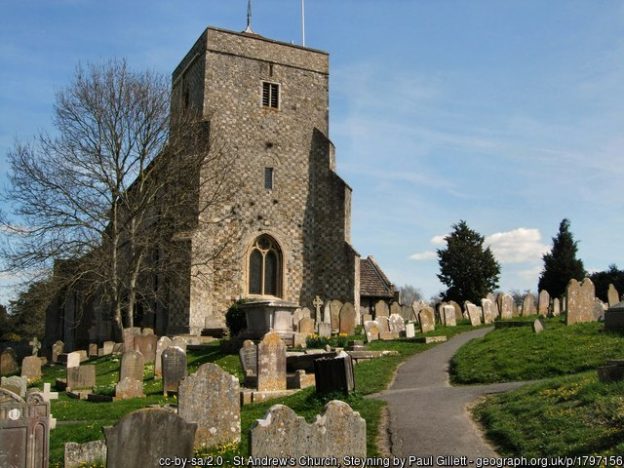Here is another case to add to the bit of my petty treason project which considers potentially instrumental use of allegations of husband-killing, as a way of clearing the widow out of the way of those whose interests would be reduced, if she was alive and able to claim her dower (or analogous interest) in the land he held. It is an early one, from the Curia Regis Roll of Easter term 13 Henry III (1229).[i]
Joscea, widow of Walter Josep sued Robert and Adam, sons of Walter Josep for land in Steyning, Sussex, as her dower. [In a primogeniture-based land system, one wonders why both sons had land, but who knows – perhaps one had alienated to the other in some form. Robert seems to be the elder son. The other thing to wonder about is whether Robert and Adam were Joscea’s sons or stepsons – it would be simpler if they were stepsons, and the way some of this is put might seem to suggest that, but, again, who knows!]. Anyway, so far, so predictable – dower disputes were very common in the 13th C. Happy families, eh?
The unusual thing about this dower dispute was the argument made for why Joscea should not have her dower. Given the topic I have trailed, it is probably obvious – Robert and Adam said that Joscea and her two brothers had killed (occiderunt) Walter. To back this up, they said that Robert had appealed Joscea of this death in the county, and this had led to her arrest. This was a big claim, obviously, and there was a need to check it out. The sheriff was ordered to produce the record of this alleged appeal before the king’s justices at Westminster. He did not do so, however, and Robert did not go ahead with his appeal. Was he ever serious about it, or was it just a way of hassling Joscea and disrupting her dower claim? If it was a ‘tactical appeal’, Robert and Adam might have thought that they were being clever, but the tactic backfired, because of the ‘rules of the game’ of medieval legal pleading. They had founded their case on the ‘she killed our dad’ plea, but to do that, they had effectively conceded that Joscea was Walter’s wife (something they could have challenged – this was a more common approach) and that the land in question was the right land for her dower. Once the appeal pleading fell apart, then, they had to lose, because they had conceded the things Joscea had to show, in order to get her dower. Joscea, therefore, got the rights in land which she claimed. Adam was taken into custody and Robert was in mercy for not prosecuting his appeal.
The allegation of husband-killing might still have caused Joscea some problems – the plea roll entry orders that it should be inquired into before the justices in eyre. I am not quite sure how to interpret this: was it the alleged killing which was to be investigated, or was it the bringing of the appeal?[ii] Something to think about and investigate before my summer paper on all of this.
One thing I do note is that there does not, at this point, seem to have been any difficulty with an heir bringing an appeal against his father’s wife, for (participation in) the killing of his father. Another one to throw at the puzzling issue of the relationship between the wife’s right to bring an appeal in relation to the death of her husband and the right of the heir to bring such an appeal, which I have written about in relation to later cases, e.g. here.
GS
1/2/2022
Image: St Andrew’s Church, Steyning.
[i] CRR vol 13: 1227-30 no. 2091; CRR 101 E 13 H III (1229) m 12.
